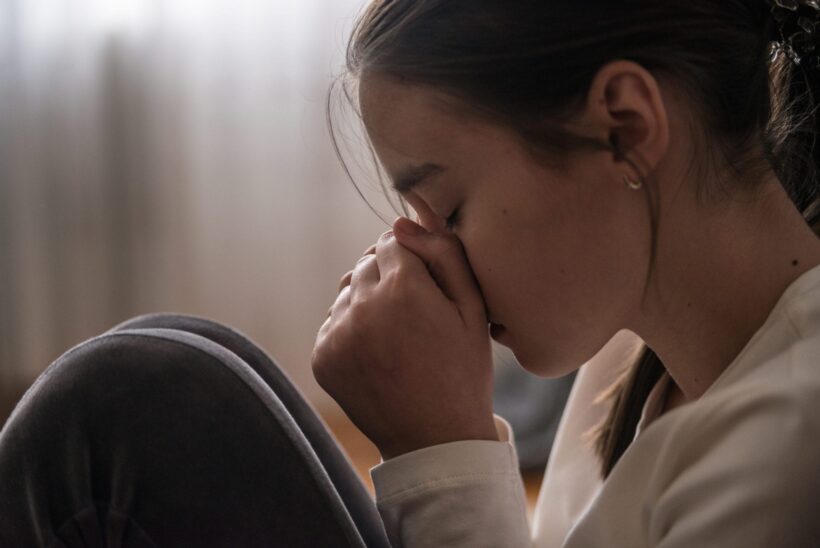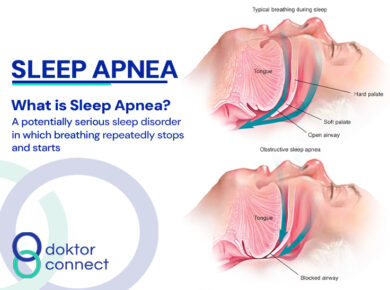Anxiety is a feeling of unease, like being worried. In stressful conditions, anxiety can be expected and even help; it usually passes once the situation is over.
What causes anxiety?
Anxiety affects everyone differently as people naturally react more than others. Anxiety can be abnormal if it is out of proportion to the stressful situation or appears for no apparent reason
Some examples of possible causes include:
- Work – feeling pressured, unemployed, underemployed, or retirement
- Family – relationship difficulties, divorce
- Finances – bills, debt, bad investment
- Health – personal illness, injury, or losing someone
- Past experiences – bullying, abuse, or abandonment
- Main life events such as buying a house, having a baby or planning a wedding, children going to school, starting graduate school, having an exam, etc
Symptoms of anxiety
There are physical, mental, and behavioural patterns that are attributed to anxiety. Anxiety is also a symptom of various anxiety disorders. These are complex mental health issues and it is always best to speak with a health professional
- Physical Symptoms:
The body releases stress hormones, such as adrenaline (epinephrine), into the bloodstream when we are anxious and causes symptoms, such as:
- Sweaty palms
- Fast heartbeat
- Lightheadedness
- Headaches
- Chest pains
- Loss of appetite
- Breathlessness
2. Mental symptoms:
- Feeling tense or nervous
- Unable to relax
- Difficulty in sleeping and concentrating
3. Changes in behaviour:
- Difficulty looking after yourself
- Struggling to form or maintain relationships
- Avoiding places and situations that create anxiety
- Compulsive behaviour, such as constantly checking things
Top tips to cope with anxiety
When anxiety becomes a problem, it can interfere with our daily life. Here are some tips to help cope with anxiety.
1. Understanding and Identifying the cause
It is easier to find ways to control what we know is making us anxious. Try keeping a diary of activities you are doing and how you feel at different times to help figure out what’s affecting you and additionally, what you need to take action on
2. Make time for worries
Set a specific “worry time” to go over your concerns each day to help you focus on other things
3. Look at the bigger picture
When anxious, we tend to not see things rationally. Therefore, think about your situation from someone else’s point of view and come up with a plan.
4. Shift your focus and try out new things
Do not focus on the things you cannot change – focus your time and energy on feeling good. Try out relaxation, mindfulness, or breathing exercises as they help relieve tension
Get leaflets and books, listen to free mental well-being audio guides, etc, on relaxation and combating stress. Activities such as running, walking, swimming, and yoga can also help you relax
5. Challenge your thoughts and face the things you want to avoid
Tackle unhelpful thoughts to feel less anxious. It’s easy to avoid situations or engage in habits that make us feel safer, but these can keep anxiety ongoing. Build-up time in worrying situations and anxious feelings will also gradually reduce.
6. Take a helpful course
Check out learning platforms e.g Udemy, Coursera, edx for helpful courses which may include: learning how to relax, problem-solving skills, coping strategies, anxiety and stress management, etc
7. Talk about your feelings
Talking things over with a friend, family member, or health professional may help
8. Stay away from harmful lifestyle practices
Although alcohol may ease symptoms in the short term, it leads to problem drinking and may make symptoms worse in the long term. Try not to resort to alcohol, cigarettes, gambling, or drugs to relieve anxiety as these can all worsen one’s mental health
9. Go for Counselling/CBT
Cognitive Behaviour Therapy (CBT) is a type of therapy that deals with your current thought processes and/or behaviours and aims to change them. Furthermore, consider going for counselling with a licensed professional
They may also be able to direct you to local groups where people use their experiences to encourage one another
Bonus Tip;
To conclude, most people tend to feel anxious at some point in their life. Identifying the cause or talking about your feelings is always a great first step. If you need to speak with a medical professional at any time you can do that here




